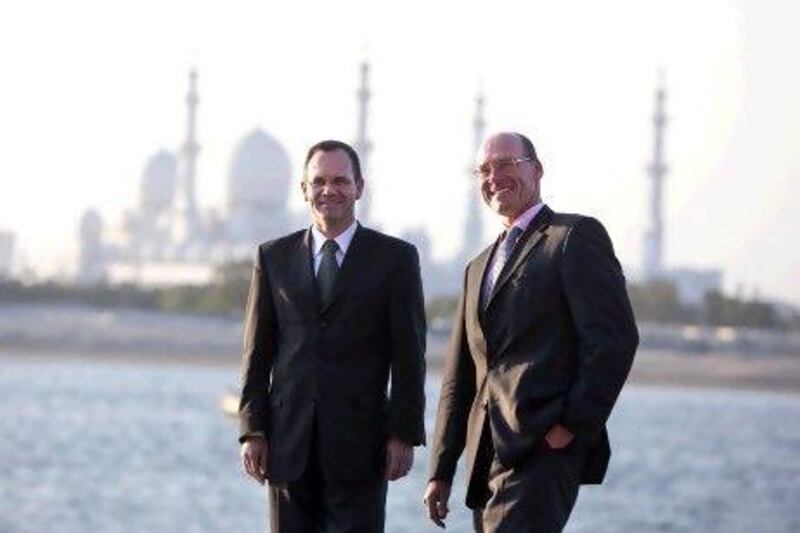A man applying for a clerical position with the US police was recently shocked to find a section in the form requesting his Facebook login details.
This may be a step too far, but experts warn that human resources (HR) departments in the Middle East need to do more to monitor social media.
"At the top level it really starts with being aware of forums in which the company is being discussed, because that is the image which is being shaped," says Sven-Olaf Vathje, a partner and co-managing director of the Abu Dhabi office of The Boston Consulting Group International.
Companies need to be aware of what is being said about them, because if they do not know, they cannot address misperceptions or answer bad press, experts say. And to do that they need someone dedicated to the task - a position that is not so common in western organisations.
"Why is it so critical to move ahead and find the right solutions for the challenges of these days? Western organisations which have a 50 to 100-year history when it comes to HR management are very much doubting whether they have the right tools in place," says Klaus Kessler, a senior partner and co-managing director of the group.
Companies in the Middle East have two choices: either copy and paste the western HR model, or learn from its inadequacies.
One area that Middle East HR departments can improve on is the search for talent.
Companies typically target the same candidates, such as an MBA or master's degree holder. But in the future HR departments will need to consider other skills to attract talent.
"I do believe we will see much stronger diversification in terms of what people will end up in business positions in the years to come compared to what kind of people end up in business positions over the last 20 to 25 years," says Mr Kessler.
"That also means the internal programmes, the leadership programmes, the training programmes, need to diversify as well."
However, HR departments in the Middle East must also overcome their own shortfalls.
"How to recruit, the recruiting interviews and recruiting programmes, how to check abilities up front at the beginning and more importantly, the whole career development, is one of the most important things in organisations that just needs further fine tuning and enhancement," says Mr Kessler.
HR departments need to work on creating clear job descriptions to make the most of the talent in the company and create positions that people want to go for. And they must also support collaboration in organisations.
The consulting group says most departments know what they are supposed to do, but many are much less clear on how units support one another.
"HR has to work on training people to collaborate. That is the dimension of training programmes which is not yet sufficiently addressed," says Mr Kessler.
Of course, they also need to pay more attention to social media, particularly as new apps are being launched all the time. Just this week, Monster Gulf released BeKnown, an app designed to allow Facebook users to establish a professional network on the social media site.
"The biggest risk that many of the organisations out there are facing is that you have employees without even knowing that they are doing it, providing information to social media that is very much related to what the profession of the job is about. And that is not yet addressed by many organisations," says Mr Kessler.






